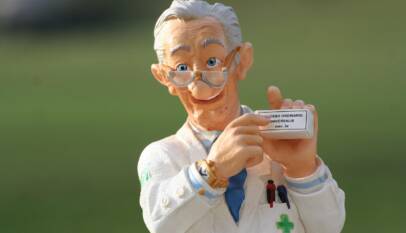Activities for Disabled Adults: Engaging Options for Social and Recreational Enjoyment
Finding engaging and meaningful activities for disabled adults can greatly enhance their quality of life. There are various options available that cater to diverse interests and abilities, including art classes, adaptive sports, and social clubs. These activities not only promote skill development but also encourage social interaction and a sense of community.
Many organizations offer tailored programs that focus on inclusion and accessibility. Participating in hobbies like gardening, music therapy, or volunteering allows individuals to explore new passions while fostering connections with others. This involvement can significantly boost mental health and overall well-being.
Exploring different avenues for recreation can transform daily routines into fulfilling experiences. From structured programs to flexible options at home, there is something valuable for everyone, emphasizing the importance of community engagement and support.
Types of Activities for Disabled Adults
Activities for disabled adults can provide personal growth, social interaction, and a sense of accomplishment. A wide range of opportunities exists, catering to different interests and abilities.
Arts and Creative Expression
Arts and creative expression offer a therapeutic outlet for individuals with disabilities. Activities include painting, pottery, and crafts. Many community organizations provide classes tailored to various skill levels.
Using adaptive tools can enhance the artistic experience. For example, textured paintbrushes assist those with limited mobility. Workshops may also focus on digital art or photography, allowing for diverse creative avenues.
Art therapy sessions can further support emotional well-being. Engaging in creative projects encourages self-expression and improves mental health. Group settings foster collaboration and promote social connections.
Physical Fitness and Sports
Physical fitness activities benefit disabled adults through improved health and well-being. Options include adaptive sports like wheelchair basketball or swimming. These activities encourage physical activity while building confidence.
Yoga and tai chi are also excellent for enhancing flexibility and balance. Classes adapted for varying mobility levels ensure inclusivity. Community centers frequently offer tailored programs to meet specific needs.
Regular participation in physical activities can lead to social engagement. Group classes foster camaraderie, helping individuals form friendships. This shared experience enhances motivation and provides a support network.
Recreational Outings and Travel
Recreational outings introduce disabled adults to new experiences. Accessible trips to museums, parks, and theaters provide opportunities for exploration. Organized group tours can accommodate various mobility needs.
Transportation options are critical for these activities. Many organizations offer accessible vehicles or assistance for individuals requiring help. Researching accessible venues ensures enjoyable experiences.
Travel programs designed for disabled adults focus on relaxation and adventure. These include guided tours with trained staff familiar with specific needs. Such experiences promote independence and personal growth.
Educational Programs and Workshops
Educational programs offer skill development for disabled adults. Topics may include computer literacy, cooking, or financial management. Classes are often structured to accommodate all learning styles and abilities.
Workshops can also involve vocational training. Programs designed for specific interests aid in career development. This focus enhances self-sufficiency and improves job prospects.
Community colleges and local organizations frequently partner to provide resources. Some offer scholarships or assistance to make programs accessible. These initiatives promote lifelong learning and engagement.
Social Gatherings and Community Participation
Social gatherings foster a sense of belonging for disabled adults. Events such as potlucks, game nights, and dance parties encourage interaction. Community groups often organize these activities to include everyone.
Volunteering opportunities allow individuals to contribute to society while engaging with others. Activities can involve helping at local food banks or participating in environmental clean-ups. This enhances personal fulfillment and connects individuals to their communities.
Support groups also play a vital role in social participation. These provide a platform for sharing experiences and accessing resources. Such connections can significantly improve mental health and well-being.
Adapting Activities for Different Disabilities
Adapting activities for disabled adults requires a thoughtful approach that considers the unique needs of individuals. By employing assistive technologies, customizing activities, ensuring accessibility, and using engagement strategies, facilitators can create inclusive environments.
Assistive Technologies and Equipment
Assistive technologies enhance participation in activities for individuals with disabilities. Examples include:
- Wheelchair Accessories: Custom mounts for devices, trays for meals, or adaptive seating can improve comfort and usability.
- Adaptive Software: Voice recognition software and screen readers assist individuals with visual impairments in engaging with digital content.
- Communication Devices: Augmentative and alternative communication (AAC) devices help those with speech impairments express themselves.
Selecting the right equipment is crucial. Assessing individual needs ensures that tools are effectively integrated into activities for maximum benefit.
Customizing Activities for Cognitive Impairments
Activities should be tailored for those with cognitive impairments. Simplifying tasks can help maintain engagement and reduce frustration.
- Step-by-Step Instructions: Use clear, concise instructions. Visual aids can reinforce understanding.
- Routine and Repetition: Establishing a consistent routine helps individuals feel secure and understand what to expect.
- Engaging Content: Choose activities with familiar themes to encourage participation.
Flexibility is essential. Adjust activities based on individual progress and preferences to optimize engagement.
Accessibility Considerations for Physical Disabilities
Ensuring physical accessibility is vital for inclusive activities. Consider the following:
- Location: Choose venues that are wheelchair accessible with ramps and elevators as needed.
- Transportation: Provide accessible transportation options for participants with mobility challenges.
- Seating Arrangements: Ensure adequate space for wheelchairs and other mobility devices during events.
Planning these elements promotes inclusion and encourages a positive experience for individuals with physical disabilities.
Engagement Strategies for Sensory Disabilities
Engagement strategies must accommodate sensory disabilities to enhance participation. Important approaches include:
- Visual Supports: Use large print, contrasting colors, or textured materials for those with visual impairments.
- Auditory Aids: Provide assistive listening devices or alternate communication methods for participants with hearing impairments.
- Multi-Sensory Activities: Incorporate elements that engage various senses, such as tactile objects, scents, and sounds, to foster connection and interest.
These strategies ensure that all individuals feel involved and valued in activities.
British Virgin Islands Company Registry Explained: Key Facts and Procedures
The British Virgin Islands company registry is a centralized system that maintains detaile…













